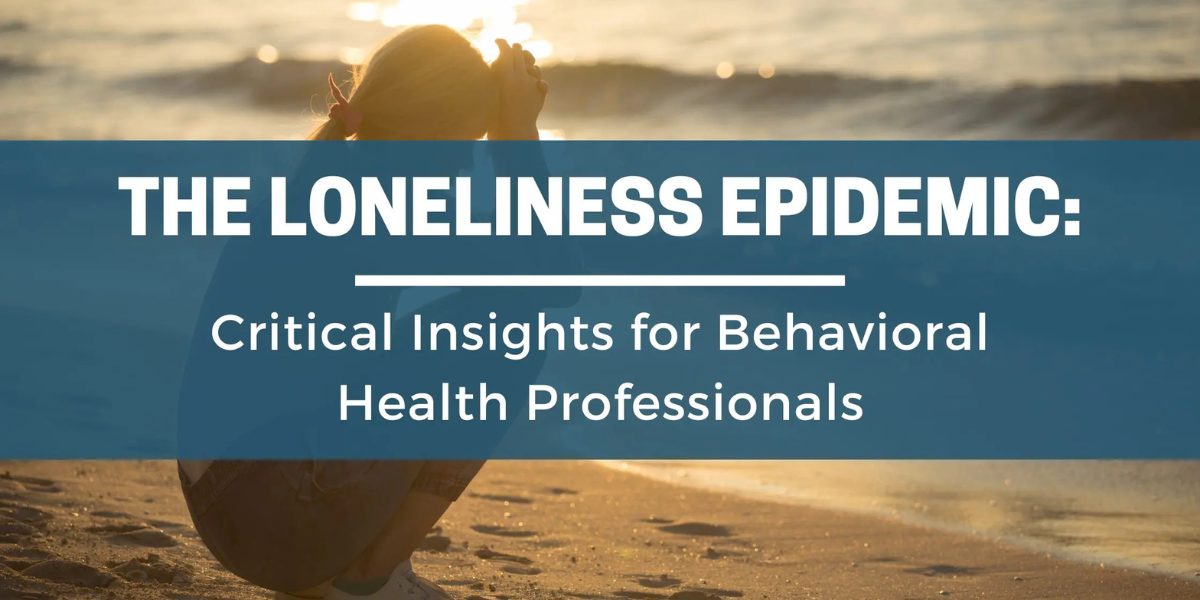Blog > Emerging Trends > The Psychology Behind Money Dysmorphia: When Self-Worth Gets Tied to Net Worth
The Psychology Behind Money Dysmorphia: When Self-Worth Gets Tied to Net Worth
Money dysmorphia is a distorted relationship with one's financial status that affects 29% of Americans, particularly younger generations. This condition ties self-worth to net worth, creating anxiety and shame even when financial circumstances are stable. Learn to recognize signs and understand root causes such as childhood financial trauma and societal pressures. Discover practical therapeutic interventions and explore strategies for integrating financial therapy principles into treatment.

Last Updated: July 03, 2025

In a world where financial success is often equated with personal value, more clients are entering therapy burdened not just by debt or spending habits, but by a distorted perception of their financial identity. This emerging phenomenon—known as money dysmorphia—is quietly impacting emotional well-being across socioeconomic groups.
According to a 2024 study conducted by Qualtrics on behalf of Intuit Credit Karma, 29% of Americans experience money dysmorphia, with younger generations more likely to report feelings of financial inadequacy.
As a behavioral health clinician, understanding money dysmorphia can help you uncover hidden drivers of anxiety, shame, perfectionism, and disordered decision-making around money.
What Is Money Dysmorphia?
Money dysmorphia is a distorted or obsessive relationship with one’s financial status, similar in presentation to body dysmorphia. Clients may believe they are financially inadequate, irresponsible, or impoverished—despite evidence to the contrary. This internalized belief system often overrides objective financial reality, leading to persistent feelings of scarcity, shame, or inadequacy.
Key Psychological Features of Money Dysmorphia
- Self-worth = net worth: Clients equate their value as a person with their income, savings, or outward signs of wealth.
- Imposter syndrome in finances: Even those with stable incomes or assets may feel they’re one paycheck away from disaster.
- Shame and secrecy: There may be a reluctance to discuss money due to deep-seated feelings of failure or comparison.
- Hyper-control or avoidance: Some clients obsessively monitor spending and hoard money; others avoid bank statements altogether.
Free Download: Money Dysmorphia Screening Toolkit
Help clients struggling with financial shame and distorted money beliefs. This 3-page toolkit includes screening questions, cognitive reframing techniques, and therapeutic interventions for addressing money-related anxiety and self-worth issues.
✅ Ready-to-Use Assessment Tool
✅ Evidence-Based Interventions
✅ Practical Clinical Strategies
Root Causes: What Drives Distorted Financial Identity?
- Early financial trauma: Clients who experienced poverty, instability, or financial conflict in childhood often develop distorted money beliefs.
- Cultural and societal norms: Capitalist ideals and social media’s glamorization of wealth perpetuate unrealistic financial comparisons.
- Mental health conditions: Anxiety, OCD, perfectionism, and depression can intensify fears of financial failure or inadequacy.
- Learned scarcity: Even financially stable individuals may operate under the constant assumption that resources will run out.
The Mental Health Impact of Money Dysmorphia
While money dysmorphia centers on distorted financial beliefs, its consequences extend far beyond budgeting spreadsheets or savings accounts—it takes a real psychological toll. For many clients, the emotional burden of never feeling financially “enough” drives anxiety, shame, perfectionism, and even avoidance behaviors that impair daily functioning.
Recent studies show that this isn't just an individual concern, it’s a widespread mental health issue:
- 86% of individuals with mental health conditions report that financial struggles have worsened their symptoms.
- 72% say their mental health challenges have negatively affected their financial well-being, creating a vicious cycle.
- Those with money dysmorphia often experience persistent worry, sleep disturbances, low self-esteem, and feelings of failure even when their financial circumstances are objectively stable.
This cycle of psychological distress is often invisible. Clinicians may see symptoms of generalized anxiety or depressive thinking before clients ever disclose concerns about money. And because financial shame is so deeply stigmatized, many clients struggle in silence—especially if their external lifestyle doesn’t align with their internal fears.
For younger clients especially, the impact can be magnified by social media comparisons, student debt, and economic instability. In fact, 43% of Gen Z and 41% of Millennials report feeling financially behind—despite many having substantial savings.
Recognizing the signs of money dysmorphia is crucial, not only to support emotional regulation but also to reduce long-term financial avoidance, burnout, or relationship distress. By treating money-related distress as a valid therapeutic issue, clinicians can break the silence around financial shame and help clients build healthier, more resilient identities.
Clinical Implications of Money Dysmorphia
Money dysmorphia can exacerbate other presenting concerns such as:
- Chronic anxiety and financial catastrophizing
- Difficulty maintaining relationships due to power imbalances or secrecy
- Relapse into maladaptive behaviors like gambling, compulsive spending, or workaholism
- Reluctance to pursue life goals due to perceived financial incompetence
What Clinicians Can Do
Just as therapists have learned to recognize the signs of body dysmorphia or perfectionism, it’s time to bring money dysmorphia into the clinical conversation. By helping clients rewrite their financial self-narratives, clinicians can promote healing, self-compassion, and a healthier relationship with both money and identity.
-
- Explore financial narratives in session. Ask about childhood experiences, parental attitudes, and social comparison.
- Validate and normalize. Reassure clients that distorted financial self-image is common and not a personal failing.
- Integrate financial therapy principles. Include cognitive restructuring, budgeting education, and behavioral experiments into your work.
- Refer when needed. Collaborate with financial coaches or advisors when the emotional and practical elements intersect.
How ICANotes Supports Clinicians Treating Money Dysmorphia
Effectively treating money dysmorphia requires more than insight—it calls for consistent documentation, structured assessment, and personalized treatment planning. That’s where ICANotes, a behavioral health EHR designed by and for clinicians, can help.
Here’s how ICANotes streamlines and strengthens your clinical approach:
Built-in Assessment Tools and Customizable Forms
ICANotes allows you to easily create and administer customized screening tools for financial stress, money dysmorphia, and related concerns. Clinicians can build intake prompts or progress note templates that explore:
- Financial self-perception
- Behavioral avoidance patterns (e.g., avoidance of bank statements)
- Emotional responses to money-related topics
You can even incorporate screening questions directly into your initial intake or psychosocial history, ensuring that financial identity is part of the therapeutic conversation from the start.
Comprehensive, Narrative Clinical Notes
Money dysmorphia often intersects with anxiety, perfectionism, and trauma. ICANotes’ menu-driven note system supports the creation of richly detailed, narrative progress notes without requiring hours of typing. This ensures that subtle emotional cues and client insights—such as internalized beliefs about worth and money—are captured clearly and thoroughly.
Treatment Planning That Aligns with Client Values
ICANotes enables value-based, goal-oriented treatment planning. You can document measurable goals around financial empowerment, shame reduction, or behavioral experiments—such as gradually engaging with financial tasks. Plans can easily include objectives like:
- “Client will identify and challenge distorted money beliefs using CBT techniques.”
- “Client will track and review financial behaviors with reduced anxiety over four weeks.”
HIPAA-Compliant, Secure Client Collaboration
When working with sensitive topics like financial shame, client trust is paramount. ICANotes ensures that all notes, forms, and communications remain encrypted and HIPAA-compliant, so clients feel safe opening up about money and mental health.
By using ICANotes to document financial narratives, track progress, and plan interventions, clinicians can approach money dysmorphia with the same clinical rigor and confidence they bring to other complex behavioral health conditions. The result? Better insight, improved outcomes, and more empowered clients.
Start Your 30-Day Free Trial
Experience the most intuitive, clinically robust EHR designed for behavioral health professionals, built to streamline documentation, improve compliance, and enhance patient care.
- Complete Notes in Minutes - Purpose-built for behavioral health charting
- Always Audit-Ready – Structured documentation that meets payer requirements
- Keep Your Schedule Full – Automated reminders reduce costly no-shows
- Engage Clients Seamlessly – Secure portal for forms, messages, and payments
- HIPAA-Compliant Telehealth built into your workflow
Complete Notes in Minutes – Purpose-built for behavioral health charting
Always Audit-Ready – Structured documentation that meets payer requirements
Keep Your Schedule Full – Automated reminders reduce costly no-shows
Engage Clients Seamlessly – Secure portal for forms, messages, and payments
HIPAA-Compliant Telehealth built into your workflow
Related Posts
Dr. October Boyles is a behavioral health expert and clinical leader with extensive expertise in nursing, compliance, and healthcare operations. With a Doctor of Nursing Practice (DNP) from Aspen University and advanced degrees in nursing, she specializes in evidence-based practices, EHR optimization, and improving outcomes in behavioral health settings. Dr. Boyles is passionate about empowering clinicians with the tools and strategies needed to deliver high-quality, patient-centered care.







